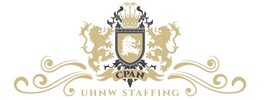A 360-Degree Approach to Personal Branding to Score the Best Jobs
By Brian Daniel for Career Success Magazine
Top-tier jobs have always been challenging to obtain, but in the era of post-COVID-19, the job market is exceptionally competitive. Ask any recruiter or HR manager about job ads; they will likely tell you they get hundreds of submissions for a single opening. In short, cut-throat competition is the order of the day. This is why you need an effective personal branding strategy.
Since I recruit for jobs that pay over $100,000 USD a year, and those positions are usually for CEOs, celebrities, or ultra-high-net-worth families, I sometimes get over 1,000 resume submissions for each job posting. Of course, all those candidates aren't qualified per se, but the competition is incredibly stiff. It's easier than one thinks to get yourself in the top 5% of those job seekers if you have a solid personal brand.
Since I recruit for jobs that pay over $100,000 USD a year, and those positions are usually for CEOs, celebrities, or ultra-high-net-worth families, I sometimes get over 1,000 resume submissions for each job posting. Of course, all those candidates aren't qualified per se, but the competition is incredibly stiff. It's easier than one thinks to get yourself in the top 5% of those job seekers if you have a solid personal brand.
What Is Personal Branding?
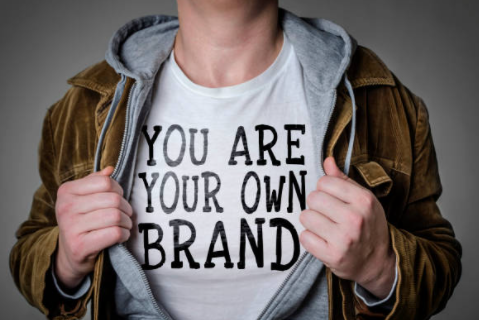 What is your brand?
What is your brand?
If you had asked someone 20 years ago -- even a career coach -- about a personal brand, they likely would have given you a perplexed look and tilted their head to one side before saying, "Personal brand, what!?"
Although the phrase is a lot more common now than ever before, you will still get career coaches debating what it means. It's like asking ten different personal trainers the best way to get "six-pack" abs. They will all absolutely insist that their way is the best. So, in short, there is no one, true definition for personal branding, but it is essentially how the public perceives you, especially potential employers (your target audience).
If I mention the company Gucci, specific images immediately enter your mind. You may think of luxury, opulence, and sophistication. Well, personal branding oneself is similar. You need a 360-degree approach to impress potential employers and stand out. You need to have a brand voice.
Job seekers should be aware that every aspect of their interaction with recruiters and HR managers is being scrutinized, so making good impressions at every turn is critical to increase your chances of making it into the "maybe" pile of resumes. Here are some of the ideas to be aware of -- in no particular order of importance. Call them, if you will, your personal branding tools:
Although the phrase is a lot more common now than ever before, you will still get career coaches debating what it means. It's like asking ten different personal trainers the best way to get "six-pack" abs. They will all absolutely insist that their way is the best. So, in short, there is no one, true definition for personal branding, but it is essentially how the public perceives you, especially potential employers (your target audience).
If I mention the company Gucci, specific images immediately enter your mind. You may think of luxury, opulence, and sophistication. Well, personal branding oneself is similar. You need a 360-degree approach to impress potential employers and stand out. You need to have a brand voice.
Job seekers should be aware that every aspect of their interaction with recruiters and HR managers is being scrutinized, so making good impressions at every turn is critical to increase your chances of making it into the "maybe" pile of resumes. Here are some of the ideas to be aware of -- in no particular order of importance. Call them, if you will, your personal branding tools:
A Successful Personal Brand Starts with a Great Resume & Cover Letter
I know I just said, "in no particular order of importance," but I lied a little because this one is imperative. Your resume and cover letter are the most crucial tool for scoring a job interview. This next part is hard to hear, but job seekers must customize every submission. All personal branding experts agree that resumes are part of your brand.
I know it's very time-consuming, frustrating, and tedious to customize each submission; but if you don't, the people who do will snatch the job you want from under your feet. The HR manager will never know how great you are unless you understand "the game" of job hunting and get yourself seen. Your professional success depends on it.
Rather than just blasting the same generic resume to 100 employers, it would be best to take that same amount of time and customize 25 submissions instead. It will work miracles. Additionally, having a personalized cover letter is equally important. Go to the company's website and "do your homework." It shows the interested parties that you care about the job you're applying for.
In the cover letter, explain why you are a fit and then prove to them that you are -- sometimes dropping the occasional fact about their company culture and mission to show them that you actually did your research and care about the position. Make them believe that you are a thought leader on your subject.
I know it's very time-consuming, frustrating, and tedious to customize each submission; but if you don't, the people who do will snatch the job you want from under your feet. The HR manager will never know how great you are unless you understand "the game" of job hunting and get yourself seen. Your professional success depends on it.
Rather than just blasting the same generic resume to 100 employers, it would be best to take that same amount of time and customize 25 submissions instead. It will work miracles. Additionally, having a personalized cover letter is equally important. Go to the company's website and "do your homework." It shows the interested parties that you care about the job you're applying for.
In the cover letter, explain why you are a fit and then prove to them that you are -- sometimes dropping the occasional fact about their company culture and mission to show them that you actually did your research and care about the position. Make them believe that you are a thought leader on your subject.
Personal Brands Include a Professional e-Mail Address
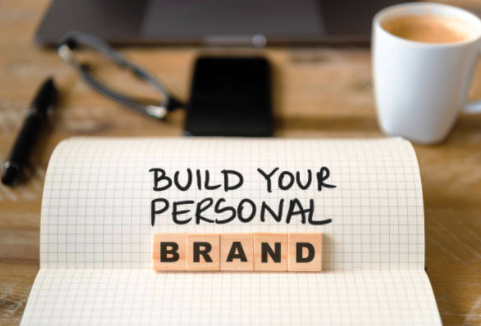 What does your brand say about you?
What does your brand say about you?
I've been writing about this for years, and it's always a little controversial; so, before I give you the "meat and potatoes" of this topic, I want to say that I realize that we don't live in a "fair" world. People judge, plain and simple. This next part is about the offline world and its impact on real life.
Most recruiters, first and foremost, agree that having a modern and professional email address (and handle) is extremely important. When I say "modern," I do not mean Hotmail, Yahoo, or AOL. The generally accepted and popularized way to go would be Outlook or Gmail. Having a Hotmail address doesn't conjure images of prowess in tech, so creating a personal brand also includes something as simple as an email address. If you don't believe me, then do a quick Google search, and you will see hundreds of results on the topic.
Most recruiters, first and foremost, agree that having a modern and professional email address (and handle) is extremely important. When I say "modern," I do not mean Hotmail, Yahoo, or AOL. The generally accepted and popularized way to go would be Outlook or Gmail. Having a Hotmail address doesn't conjure images of prowess in tech, so creating a personal brand also includes something as simple as an email address. If you don't believe me, then do a quick Google search, and you will see hundreds of results on the topic.
Your Own Personal Brand: The e-Mail Company
And while judging one's abilities because of an email address can be unwarranted, I can say from first-hand experience as a recruiter that many applicants with Hotmail addresses are not "tech-savvy," so there it is without any sugarcoating. Businesspeople must learn these lessons as part of an ongoing process to manage their online reputation.
Let's talk about the email address, assuming you use Outlook or Gmail. It shouldn't be anything other than some version of your name because of public perception. Of course, it's tough to do that since someone else probably took your name, but there are workarounds. For example:
You get the gist. While you may cringe at using some of the above, anything is better than Surfer_Dude2121@******.com or BrianDaniel20045@*******.com. By the way, I don't know a recruiter who hasn't received resumes from incredibly raunchy email addresses -- ones so bad I don't even dare repeat them here. It seems so obvious, and I hate mentioning it because it sounds so condescending. Still, because I'm confronted with it every day, so many people out there need to hear this. Otherwise, you will have a PR disaster regarding your job search.
Finally, let's talk about the email "handle" (the name that appears in the inbox of the person who gets your mail). Again, while it seems so remedial and blatantly obvious, I get at least one submission from someone who breaks these cardinal rules every day. Read on, and you will see that it makes sense.
The email handle should be your first and last name, which begins with a capital letter. Here are just some of the variations that I see from day to day:
Let's talk about the email address, assuming you use Outlook or Gmail. It shouldn't be anything other than some version of your name because of public perception. Of course, it's tough to do that since someone else probably took your name, but there are workarounds. For example:
- Brian.Daniel@*******.com
- BrianDaniel@*******.com
- the.brian.daniel@*******.com
- Daniel.Brian@*******.com
- bdaniel@*******.com
- the_briandaniel@*******.com
You get the gist. While you may cringe at using some of the above, anything is better than Surfer_Dude2121@******.com or BrianDaniel20045@*******.com. By the way, I don't know a recruiter who hasn't received resumes from incredibly raunchy email addresses -- ones so bad I don't even dare repeat them here. It seems so obvious, and I hate mentioning it because it sounds so condescending. Still, because I'm confronted with it every day, so many people out there need to hear this. Otherwise, you will have a PR disaster regarding your job search.
Finally, let's talk about the email "handle" (the name that appears in the inbox of the person who gets your mail). Again, while it seems so remedial and blatantly obvious, I get at least one submission from someone who breaks these cardinal rules every day. Read on, and you will see that it makes sense.
The email handle should be your first and last name, which begins with a capital letter. Here are just some of the variations that I see from day to day:
- Brian daniel (lower case last name)
- brian Daniel (lower case first name)
- brian daniel (both names lower case)
- Brain Daniel (yes, people misspell their own names)
- Brian and Sue Daniel (people sharing emails and putting both names)
Start to Build Your personal Brand with a Great LinkedIn Profile
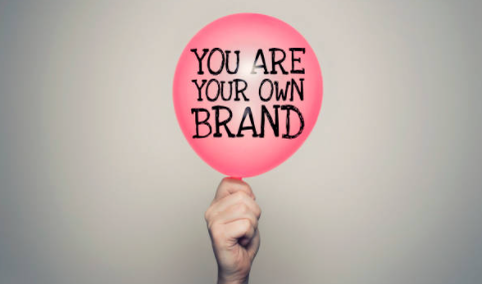 Use LinkedIn as a branding tool
Use LinkedIn as a branding tool
A well-crafted LinkedIn profile is vital in today's job market, even if you're just at your first job. Not having one certainly does have an impact on a candidate's chances of scoring a job.
Potential clients want to see how job seekers portray themselves professionally; LinkedIn is a fantastic opportunity to bring some "wow" to your submission. Just some of the essential areas that need extra attention are:
Potential clients want to see how job seekers portray themselves professionally; LinkedIn is a fantastic opportunity to bring some "wow" to your submission. Just some of the essential areas that need extra attention are:
No Political Views
People with strong personal brands don't post about political views. Simply put: It offends people. All social media channels should be free of content like this. Self-branding is a unique combination of carefully crafted posts that will get you raving fans and put you on the right track.
Build Your Audience & Create Content
Regardless of your industry, thought leaders write great content on social media profiles. You can build a personal brand with your unique voice. And, incidentally, you will also attract new business. When writing content, direct readers to additional resources to make the content more credible. With enough good posts, you will see your audience numbers climb.
Top Influencers Have Amazing Headshots
Your photo should be a "professional" one -- taken by an experienced photographer with a business setting behind you (i.e., like a bookshelf or in an office space). Not a day goes by I don't see cropped photos of people at nightclubs (complete with "red eye" from the camera flash against the retina). Building your personal brand involves all things A to Z, especially a headshot.
Create a Banner Related to Your Industry
Don't leave the grayish default banner unchanged. Instead, put something related to your vocation. I recently had a career-coaching session with a client who was a sound engineer for movies in Hollywood, so I suggested he have a photo of himself sitting down at a mixing board in an editing studio. He changed his banner, and his profile really "popped" and came to life. The adage is still true: First impressions last a lifetime.
Of course, building your audience and attracting prospective clients will take time, but like The Tortoise & The Hare, you need to brand strong if you hope to earn more money.
Of course, building your audience and attracting prospective clients will take time, but like The Tortoise & The Hare, you need to brand strong if you hope to earn more money.
Building a Personal Brand Includes LinkedIn Endorsements & Recommendations
Naturally, people avoid chasing current or old colleagues and asking them to help their personal branding process. Still, having endorsements and recommendations scores points with current and potential clients. Some people feel asking old colleagues for help is like being a pest, or they are afraid that someone will say no and they will get their feelings hurt. Well, it's time to go out of your comfort zone. Just ask because it is required for successful personal branding.
Having many coworkers say you are "great" is proof positive that you are. We know in the job interview that the HR manager will ask you what your boss and coworkers think of you and, of course, you will say great things about yourself. But how will they know if you are telling the truth? It will be on your LinkedIn profile confirmed by your coworkers. With enough credibility, you're on your way to being a thought leader.
Having many coworkers say you are "great" is proof positive that you are. We know in the job interview that the HR manager will ask you what your boss and coworkers think of you and, of course, you will say great things about yourself. But how will they know if you are telling the truth? It will be on your LinkedIn profile confirmed by your coworkers. With enough credibility, you're on your way to being a thought leader.
Online Presence: Know What Is in the Search Engines
It's time to confess the biggest surprise of my recruiting career. In this case, it would have to be how people portray themselves online, particularly with social media. How many "Fired Over Facebook Post" articles do we have to see before job seekers will learn their proverbial lessons? If you Google the phrase "Fired Over Facebook Post," you will get hundreds of articles spanning a decade. Yet, it still needs to be solved: Clumsy social media presence.
It's been scientifically proven by several surveys and research articles that 93% of potential employers are going to research you online at some point during the interview process -- usually sooner rather than later because they don't want to invest any time in candidates who will be disqualified because of controversial posts. A good personal brand indeed helps land and keep jobs.
Several news articles highlight the practice of some employers even asking for Facebook passwords when your profile is set to private. There is great debate over the morality and legality of the practice. Still, it illustrates that employers are very serious about how their employees represent them -- directly or indirectly. Your harmful posts can land you on the first page of Google, but not for the right reasons.
During a job search, all of your social media platforms should be set to private, end of discussion. Even after passing your 90-day probation, avoid controversial topics that could put anyone off. If you have any postings that could come back to haunt you, then it's best to err on the side of caution and delete them. Build a personal brand the right way -- with content that counts.
I could spend hours telling you about the horror stories of recruiting. I have seen some talented people destroy their careers regarding social media. If you can imagine it, I have seen it. I have to say candidly, it's usually the "younger" people in their 20s and 30s. By the time people reach their 40s, they have learned some tough lessons and avoid social media snafus -- but I should say that people of all ages make these careless mistakes. As soon as you read this, check your social media profiles for content that could harm your career.
It's been scientifically proven by several surveys and research articles that 93% of potential employers are going to research you online at some point during the interview process -- usually sooner rather than later because they don't want to invest any time in candidates who will be disqualified because of controversial posts. A good personal brand indeed helps land and keep jobs.
Several news articles highlight the practice of some employers even asking for Facebook passwords when your profile is set to private. There is great debate over the morality and legality of the practice. Still, it illustrates that employers are very serious about how their employees represent them -- directly or indirectly. Your harmful posts can land you on the first page of Google, but not for the right reasons.
During a job search, all of your social media platforms should be set to private, end of discussion. Even after passing your 90-day probation, avoid controversial topics that could put anyone off. If you have any postings that could come back to haunt you, then it's best to err on the side of caution and delete them. Build a personal brand the right way -- with content that counts.
I could spend hours telling you about the horror stories of recruiting. I have seen some talented people destroy their careers regarding social media. If you can imagine it, I have seen it. I have to say candidly, it's usually the "younger" people in their 20s and 30s. By the time people reach their 40s, they have learned some tough lessons and avoid social media snafus -- but I should say that people of all ages make these careless mistakes. As soon as you read this, check your social media profiles for content that could harm your career.
Personal Branding & Interview Skills
 Know your audience for branding
Know your audience for branding
I regularly see posts on LinkedIn where people complain about not making it past the first interview. Firstly, job seekers should not be venting on social media, especially on a platform where the employers you are complaining about will read it. Not to mention that you will seriously impede your ability to get future interviews because HR managers will be turned off by it. There are better personal branding strategies than complaining online. Remember to define who your target audience is -- employers and clients.
Interviewing is an art and a science. Most people are not very good at it, and that's understandable. If the average person spends two or three years at a job, then there is only a short window of time every two or three years that you have to interview for jobs, so how could you be perfect? If you only cooked a few times every two or three years, you wouldn't be good at it either. Interviewing is no different. That's why personal branding is essential.
Now, perfectly juxtaposed to that, human resource professionals interview people every day for a living. And, as you would expect, if you spend 4 to 6 hours a day at something, you will be an expert. One should be aware of the importance of thoroughly (over) preparing for a job interview. If you don't, the candidates who do will blow you out of the water. Successful personal branding is more than dressing well or having a great resume; it's perception.
Before I started my headhunting firm, I scored some fabulous once-in-a-lifetime jobs. Without exception, I over-prepared and did exhaustive homework each time. In this "new normal," job hunts require it. There is no option not to do it. If you "wing it," you will be disappointed every time.
I regularly see posts on social media, and people are pouring their hearts out with frustration, saying they have been unemployed for over a year and can't make it to a final interview and get an offer. Simply put, it's because there isn't enough effort being put into the interview preparation process. Creating a business-savvy brand will put you ahead of your competition.
I liken the interview process to auditioning like actors do; if you think about it, the analogy is perfect. When roles are open in Hollywood, hundreds or even thousands of submissions are handled by casting directors, a recruiter role in the entertainment industry.
With overwhelming competition, actors have to rehearse like there is no tomorrow. Interviewing is no different. You will always be up against candidates with more experience and better credentials, so your only shot is to have a solid personal brand, which includes exceptional interviewing skills. The best solution is to rehearse just like actors do.
Interviewing is an art and a science. Most people are not very good at it, and that's understandable. If the average person spends two or three years at a job, then there is only a short window of time every two or three years that you have to interview for jobs, so how could you be perfect? If you only cooked a few times every two or three years, you wouldn't be good at it either. Interviewing is no different. That's why personal branding is essential.
Now, perfectly juxtaposed to that, human resource professionals interview people every day for a living. And, as you would expect, if you spend 4 to 6 hours a day at something, you will be an expert. One should be aware of the importance of thoroughly (over) preparing for a job interview. If you don't, the candidates who do will blow you out of the water. Successful personal branding is more than dressing well or having a great resume; it's perception.
Before I started my headhunting firm, I scored some fabulous once-in-a-lifetime jobs. Without exception, I over-prepared and did exhaustive homework each time. In this "new normal," job hunts require it. There is no option not to do it. If you "wing it," you will be disappointed every time.
I regularly see posts on social media, and people are pouring their hearts out with frustration, saying they have been unemployed for over a year and can't make it to a final interview and get an offer. Simply put, it's because there isn't enough effort being put into the interview preparation process. Creating a business-savvy brand will put you ahead of your competition.
I liken the interview process to auditioning like actors do; if you think about it, the analogy is perfect. When roles are open in Hollywood, hundreds or even thousands of submissions are handled by casting directors, a recruiter role in the entertainment industry.
With overwhelming competition, actors have to rehearse like there is no tomorrow. Interviewing is no different. You will always be up against candidates with more experience and better credentials, so your only shot is to have a solid personal brand, which includes exceptional interviewing skills. The best solution is to rehearse just like actors do.
How to Become Better at Interviews for Building a Personal Brand
Spend time with a friend or family member, and have them ask you the same silly, canned questions that we have all come to know and love:
Just like an actor, focus on what the audience wants to see by creating a winning leading man or woman everyone in the office wants to have.
I recently spoke to a friend who interviewed for an entry-level HR position with a meager salary. She had six (yes, six) interviews. There is a particular reason companies are making candidates jump through so many hoops. They want to see if you want the job and have the stamina to "hack it."
Anyone who is a business owner will tell you that if they did just one interview with someone and then hired, there is a perfect chance that the candidate will have a short tenure and quit shortly after you train them. The reason is simple: easy come, easy go. It won't mean much to the job seeker if they don't have to work for the job. I have made the same mistake myself. These strategies employers use with so many interviews are a cut-throat business, but they are necessary for today's market. The focus for the employer is to create demand for the role and attract the best candidates possible.
Of course, the "easy come, easy go" theory can't be accurate 100% of the time, but most of the time it is. And because HR teams are so sophisticated now, they are going to put job seekers through trials and tribulations to make sure candidates have "the stuff" -- and part of that "hazing process" is interviewing candidates multiple times to make sure the answers they gave in the first and second interviews were real. Again, it's just business.
- Tell me about yourself.
- What attracted you to this position?
- Why should I hire you?
Just like an actor, focus on what the audience wants to see by creating a winning leading man or woman everyone in the office wants to have.
I recently spoke to a friend who interviewed for an entry-level HR position with a meager salary. She had six (yes, six) interviews. There is a particular reason companies are making candidates jump through so many hoops. They want to see if you want the job and have the stamina to "hack it."
Anyone who is a business owner will tell you that if they did just one interview with someone and then hired, there is a perfect chance that the candidate will have a short tenure and quit shortly after you train them. The reason is simple: easy come, easy go. It won't mean much to the job seeker if they don't have to work for the job. I have made the same mistake myself. These strategies employers use with so many interviews are a cut-throat business, but they are necessary for today's market. The focus for the employer is to create demand for the role and attract the best candidates possible.
Of course, the "easy come, easy go" theory can't be accurate 100% of the time, but most of the time it is. And because HR teams are so sophisticated now, they are going to put job seekers through trials and tribulations to make sure candidates have "the stuff" -- and part of that "hazing process" is interviewing candidates multiple times to make sure the answers they gave in the first and second interviews were real. Again, it's just business.
Industry Secrets: How to Elevate Your Reputation & Brand
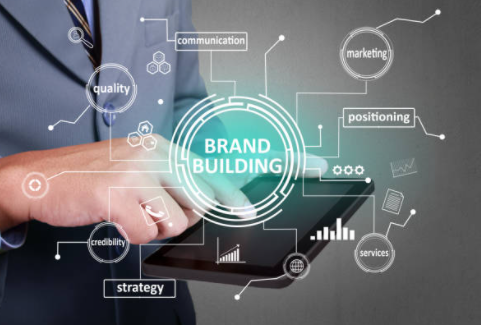 Know how to craft your image
Know how to craft your image
Part of being prepared for the grueling interview process is to "do your homework" on the company. If you are well-versed in the company's philosophy, you will have plenty to talk about in the job interview.
I interviewed for a management position at a world-famous company many years ago. The HR manager I spoke with said I was the most prepared candidate she had ever seen in her 25-year career with the company. Surprisingly, she also said I knew more about the company than she did. I have always been very proud of that moment (of course, I was offered the job). Knowledge is power, and knowing about your business gives you an industry edge.
I also made an HR manager cry once because she was so touched by a story that I told her about leadership. Now, I'm not advocating that you make anyone cry tears of happiness. Still, the lesson I learned in that interview was that it's good to prepare a list of stories because when those "canned questions" come at you, candidates will have the ammo and resilience they need to make it through three to six interviews unscathed. Hitting the interviewer on an emotional level will help you create bonding, one of the most essential strategies in the world.
My general rule: Have a story ready for every bullet point on your resume, and you can't go wrong.
I interviewed for a management position at a world-famous company many years ago. The HR manager I spoke with said I was the most prepared candidate she had ever seen in her 25-year career with the company. Surprisingly, she also said I knew more about the company than she did. I have always been very proud of that moment (of course, I was offered the job). Knowledge is power, and knowing about your business gives you an industry edge.
I also made an HR manager cry once because she was so touched by a story that I told her about leadership. Now, I'm not advocating that you make anyone cry tears of happiness. Still, the lesson I learned in that interview was that it's good to prepare a list of stories because when those "canned questions" come at you, candidates will have the ammo and resilience they need to make it through three to six interviews unscathed. Hitting the interviewer on an emotional level will help you create bonding, one of the most essential strategies in the world.
My general rule: Have a story ready for every bullet point on your resume, and you can't go wrong.
Final Thoughts to Help You with Your Personal Branding Strategy
- Consistently brand across all of your social media accounts
- Build a personal website and start a blog post
- Remember your target audience
- Don't forget about search engine optimization with your posts
- Write about real-life topics related to your industry
- Reputation matters in business, so focus on quality content
About the Author
Brian Daniel is a former Executive Assistant to celebrities, billionaires, American aristocracy, and royal families. He is the founder and director of The Celebrity Personal Assistant Network, a headhunting firm for UHNW families. Brian has appeared in various high-profile media outlets worldwide. He has been a featured writer on LinkedIn's Pulse platform, appearing next to other "influencers" like Richard Branson.
Brian holds a BA degree in linguistics (Cross-cultural communication) and a master's degree in education, which he used to become an expert curriculum designer for training purposes. His professional development includes courses from the world's top-10 universities like Harvard, Berkeley, Columbia, and Oxford. Additionally, he has certifications in Cover Letter Writing, Career Coaching, and Resume Writing.
He is the author of "Dream Careers: The Insider's Guide to Working with the High Net Worth," now available for free at www.FindCelebrityJobs.com.
Brian holds a BA degree in linguistics (Cross-cultural communication) and a master's degree in education, which he used to become an expert curriculum designer for training purposes. His professional development includes courses from the world's top-10 universities like Harvard, Berkeley, Columbia, and Oxford. Additionally, he has certifications in Cover Letter Writing, Career Coaching, and Resume Writing.
He is the author of "Dream Careers: The Insider's Guide to Working with the High Net Worth," now available for free at www.FindCelebrityJobs.com.
This article was originally published in Career Success Magazine and updated for relevancy in 2024
